You probably know that keyword research forms the backbone of SEO.
You’re also likely aware that finding the right terms for your campaigns manually takes a lot of effort.
That’s where keyword research tools do the heavy lifting. From showing exact search volumes and ranking difficulty to revealing competitor keywords and related phrases, they make it easier to move past research and into actual implementation.
But which tools are worth it? I’ve done the research and compiled a list of the best keyword research tools for 2026.
But first, lets' take a look at.
Different Types of Keyword Research Tools
There are several different types of keyword research tools available for SEO beginners. Some popular types include:
- Free tools: These give you basic keyword ideas and search volume without costing anything upfront.
- Paid, specialized tools: These offer advanced features like detailed competitor analysis, keyword difficulty scores, and comprehensive SERP data for a monthly subscription.
- All-in-one tools: These tools combine keyword research with rank tracking, site audits, and backlink analysis to give you a complete SEO toolkit in one platform.
- Platform-specific tools: These focus on particular search engines or platforms like YouTube, Amazon, or local search.
- Competitor analysis tools: These tools show you what keywords your competitors are targeting and how well they’re performing for those terms.
Editor's top pick (paid)
Semrush: I love Semrush because it handles both keyword research and content planning better than any other paid tool I've used.
Editor's top pick (free)
Google Keyword Planner: I trust Google Keyword Planner's search volume data more than third-party estimates since it comes straight from Google's own database.
#1 Semrush
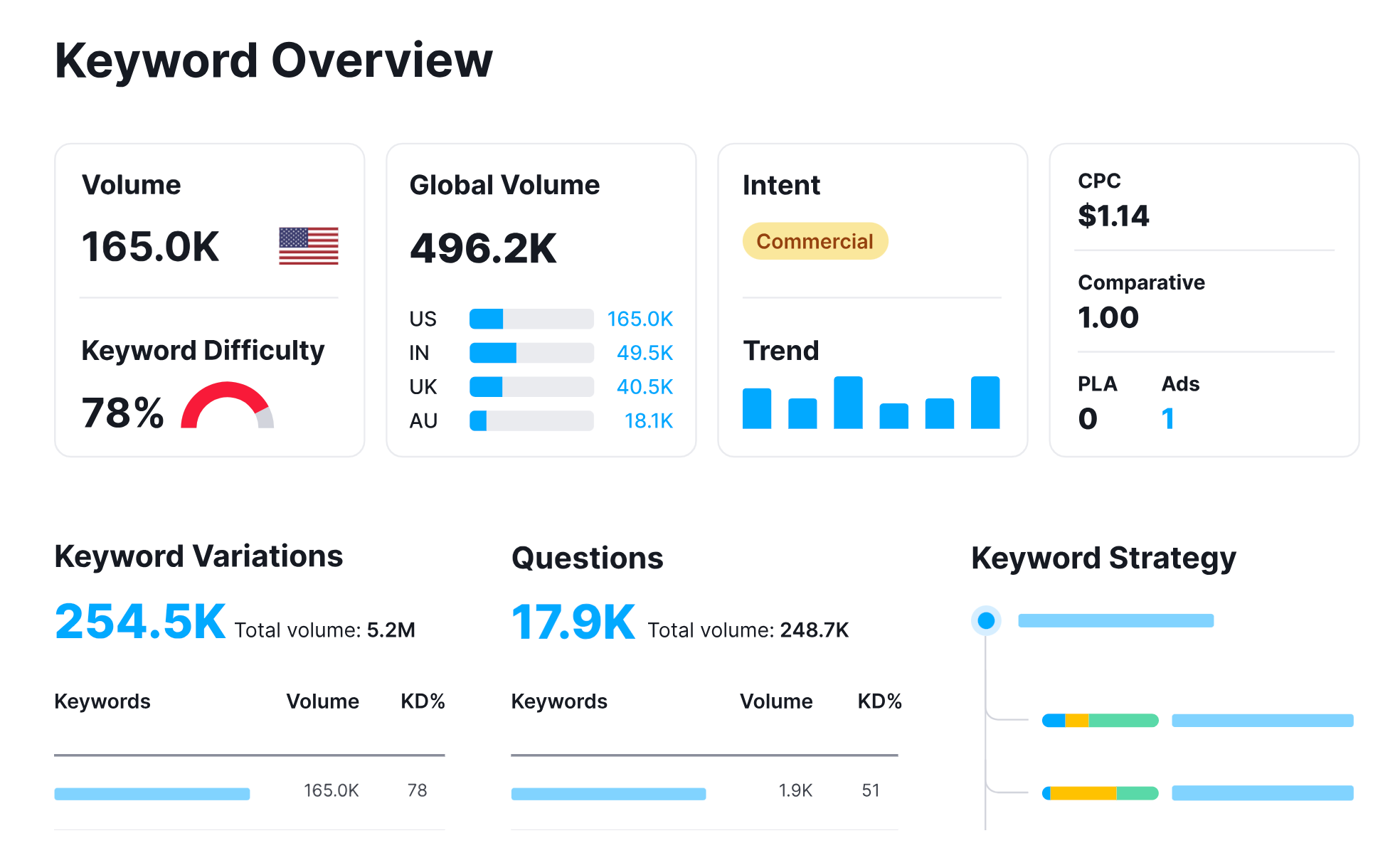
Semrush is the perfect choice if you want an SEO tool with detailed keyword research and competitor analysis features.
With its Keyword Magic Tool, you can enter any term and get thousands of keyword suggestions organized by search intent and difficulty levels.
Want to spy on competitors? Use the keyword gap analysis to see exactly which terms your rivals are ranking for.
Best uses:
- Finding keyword gaps between you and your competitors
- Planning comprehensive SEO keyword research campaigns
- Analyzing competitor strategies for target keywords
- Managing keyword data across multiple client projects
Plans start at $139.95/month for basic keyword research, with higher tiers adding advanced features like historical keyword data and API access for agencies.
#2 Ahrefs
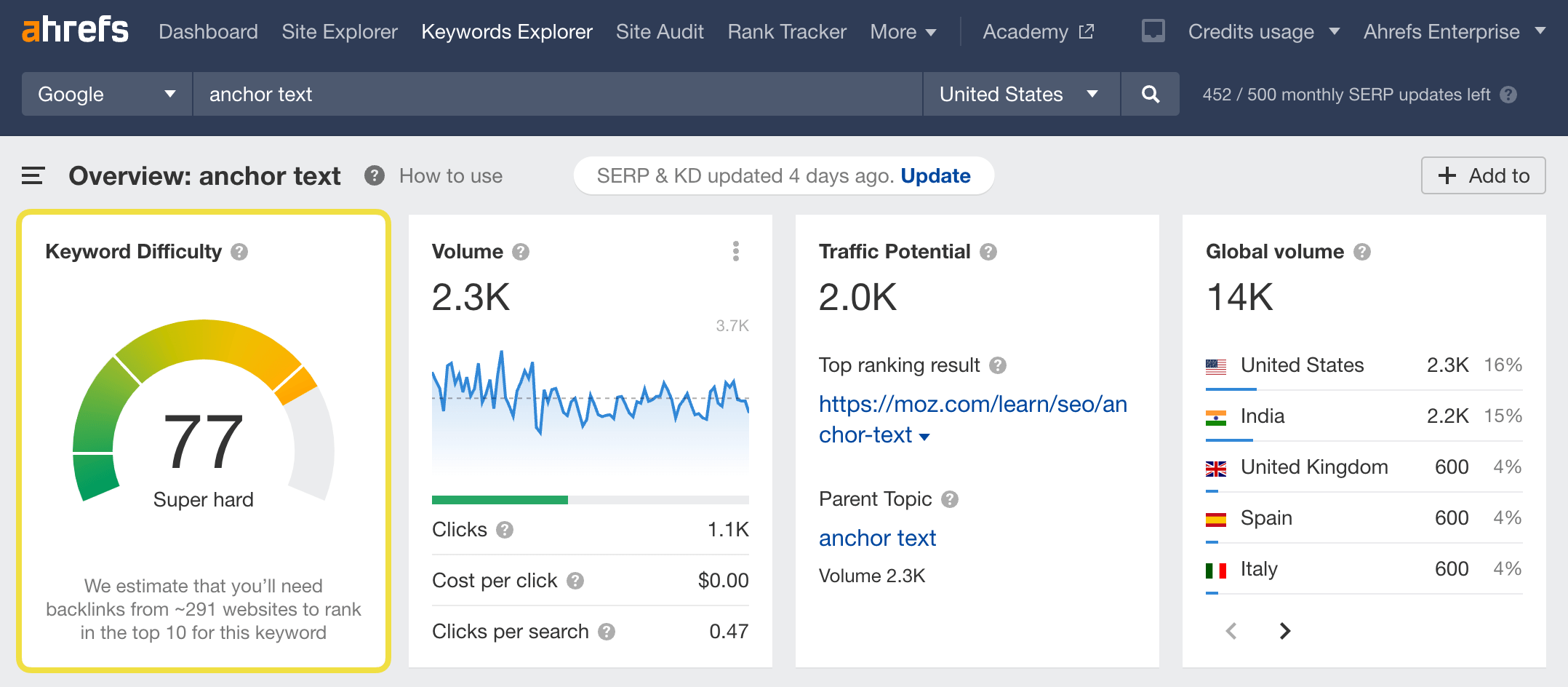
Ahrefs has some really handy keyword research features you can use to plan your SEO strategy.
For example, its Keyword Explorer tool lets you uncover related keywords, explore search trends, and get keyword suggestions you might not have considered.
You also get keyword difficulty scores that show how tough it is to rank, along with traffic potential estimates that help you decide which keywords are worth targeting.
Best uses:
- Analyzing competitor keyword strategies and SERP performance
- Measuring content depth requirements for target keywords
- Performing technical SEO audits and broken link checks
- Assessing keyword difficulty based on required referring domains
Pricing
Plans start at $129/month for basic keyword research, with higher tiers offering advanced capabilities and complete SEO tool access.
#3 Moz Keyword Explorer
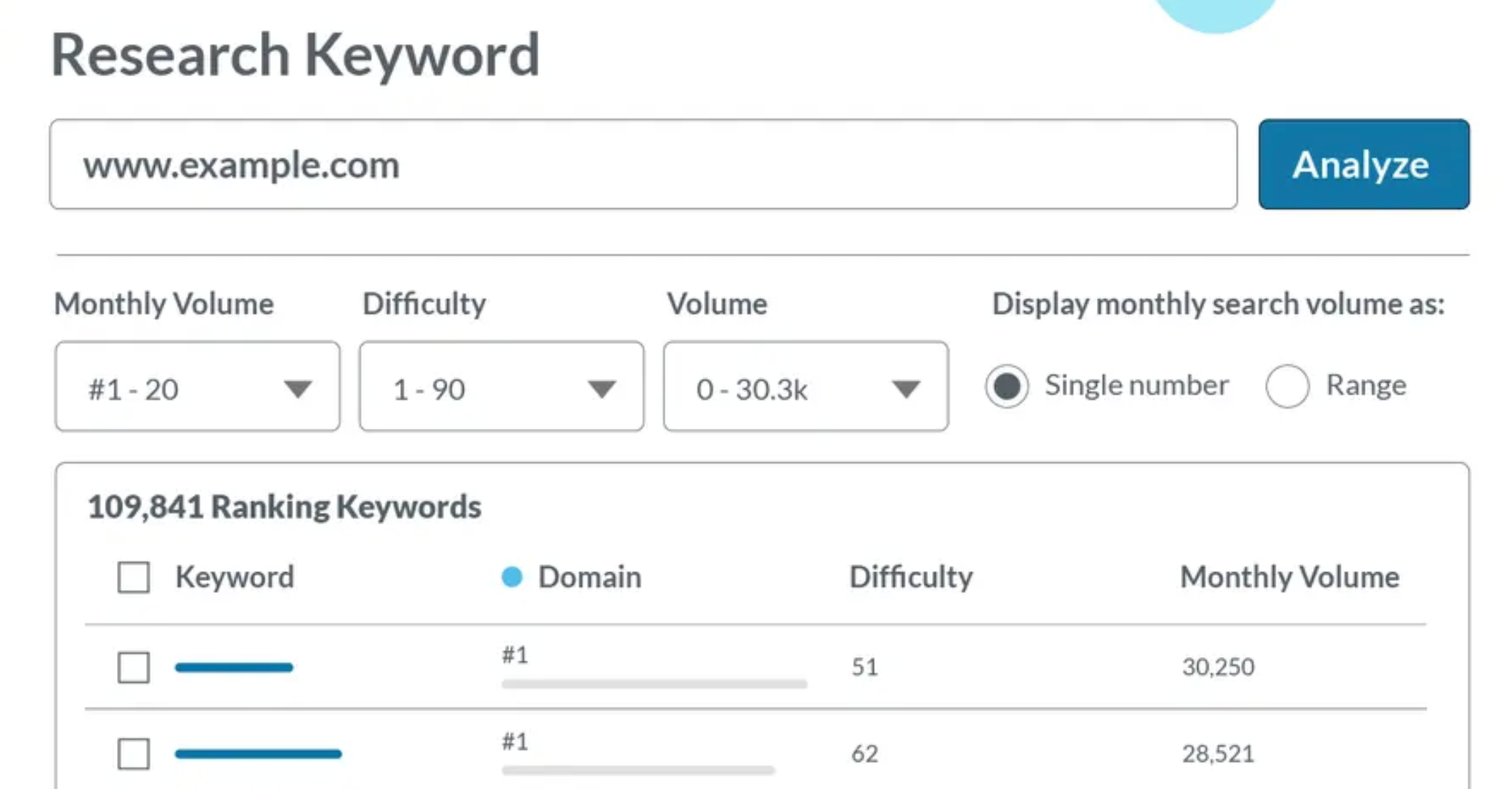
Moz works well if you're new to SEO and want a keyword analysis tool that won't overwhelm you with complex data.
The keyword explorer tool provides monthly search volume, keyword difficulty scores, and a "Priority" metric that combines multiple factors to help you find the right keywords for your SEO strategy.
The platform also includes basic competitor analysis and site audits, though the organic keyword research capabilities aren't as comprehensive as premium alternatives like Semrush or Ahrefs.
Best uses:
- Beginner-friendly SEO keyword research with clear metrics
- Learning SEO fundamentals with educational resources
- Basic competitor analysis for target keywords
- Small business keyword strategy development
Pricing: Plans start at $99/month for the Standard plan with core keyword research features.
#4 Serpstat
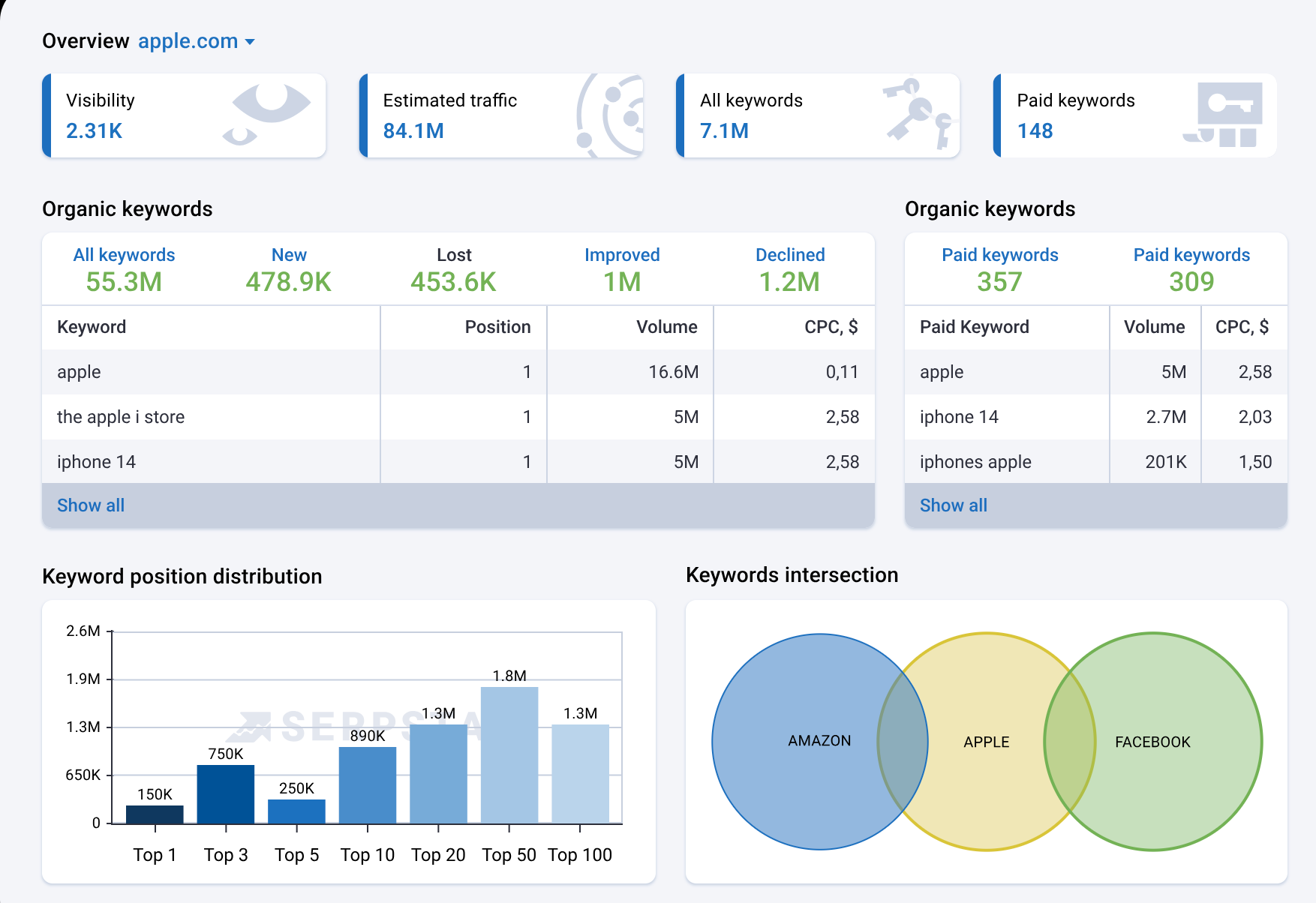
Serpstat isn't the most powerful keyword research tool on the market, but it offers solid value for teams on a budget.
The platform covers keyword research across 230 countries and includes useful features like keyword clustering that groups related terms by topic for better content planning.
However, users often report that the interface feels sluggish when processing larger datasets, and the keyword data isn't as deep or accurate as premium alternatives.
Best uses:
- Budget-conscious teams needing comprehensive SEO tools
- International SEO campaigns across multiple regions
- Technical SEO work alongside basic keyword research
- Small agencies looking for affordable all-in-one functionality
Pricing: Plans start at $69/month for basic keyword research and site auditing features
#5 AnswerThePublic
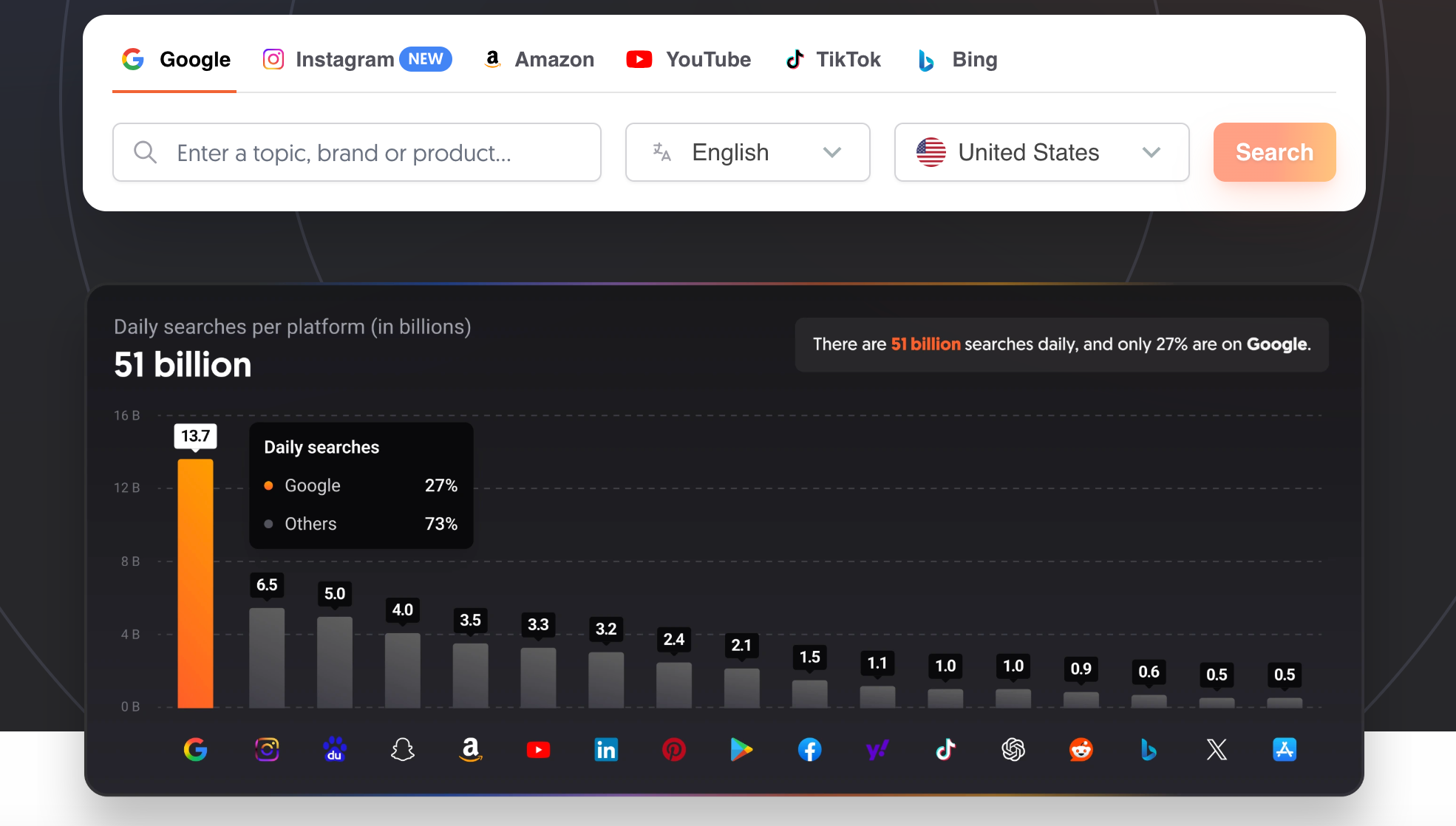
AnswerThePublic is a free keyword tool that helps you find questions people are asking about any topic.
You type in a keyword and it shows you hundreds of question-based searches like "how to," "what is," and "why does" related to your topic from Google, YouTube, and other platforms.
This helps you understand search intent and find content ideas that directly answer your target audience's questions.
Best uses:
- Finding long tail keyword variations that sound natural
- Creating FAQ sections that answer real customer questions
- Generating blog post ideas around customer pain points
- Identifying new keywords for organic search content planning
Pricing: Plans start at $5/month for 100 daily searches with search volume data.
#6 Google Keyword Planner
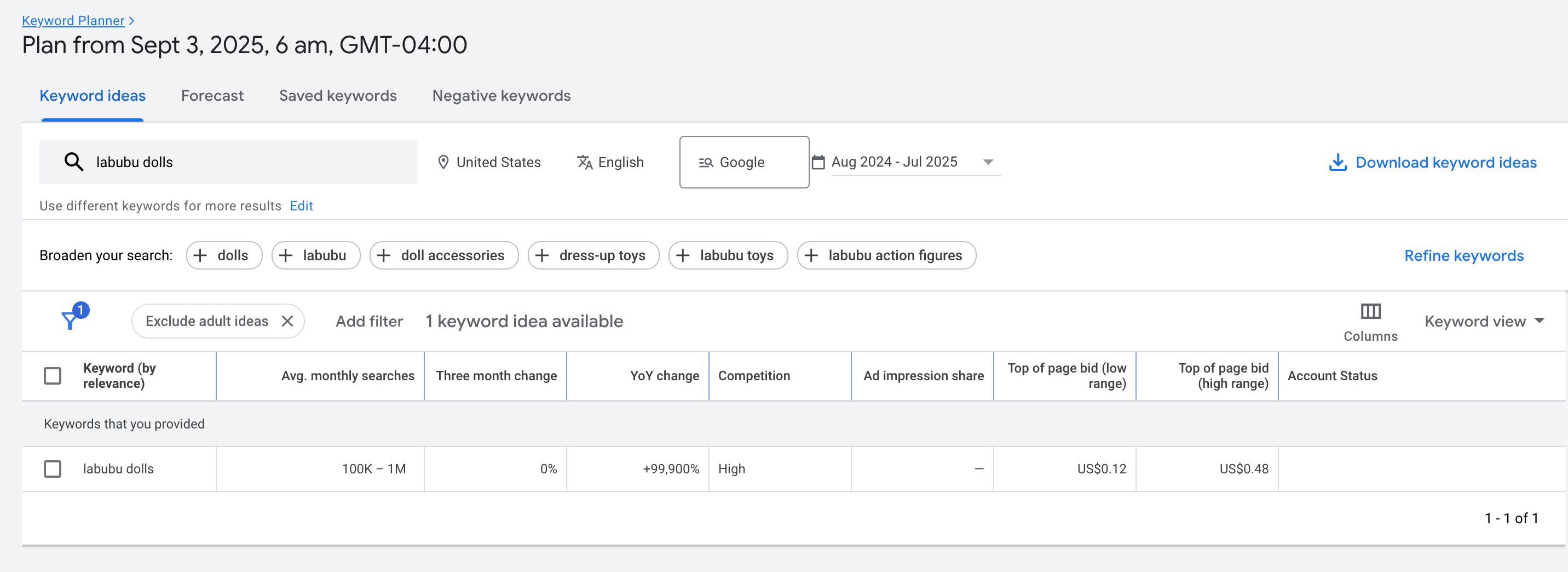
Google Keyword Planner remains the gold standard for free keyword research, despite being designed primarily for advertisers.
The tool provides reliable monthly search volume ranges and shows you exactly what keywords people are typing into Google.
You won't get the deep competitive insights that paid keyword research tools provide, but it's great for finding new keyword opportunities and checking if there's actual search demand.
Best uses:
- Validating keyword demand before creating content
- Finding new keyword ideas for blog posts and pages
- Getting official Google search volume data
- Budget-conscious businesses starting their SEO journey
Pricing: Free with a Google Ads account (no ad spend required).
#7 ChatGPT
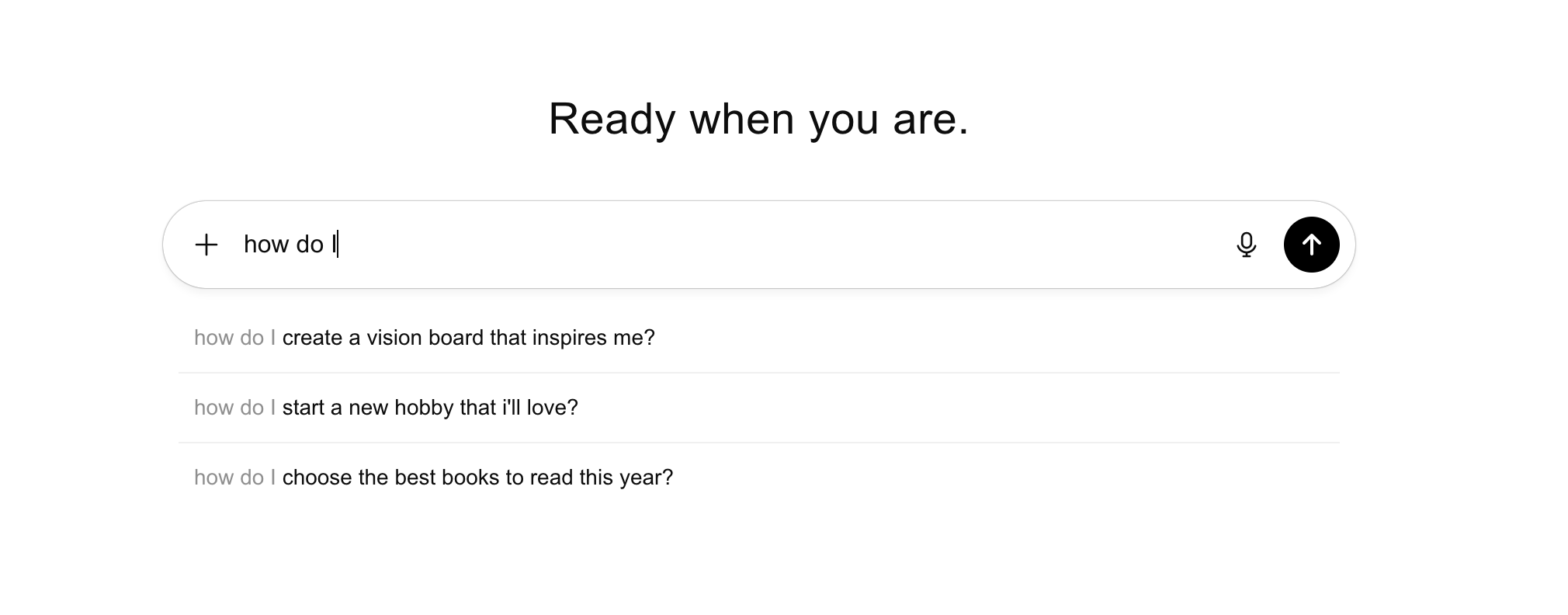
ChatGPT is a lot of things to a lot of people, but for SEOs, it's a free keyword research tool that's ripe for experimentation.
The platform excels at finding long-tail keywords and question-based searches that people actually use in conversation.
You can ask it to generate keyword clusters by topic and classify terms by search intent, though you won't get competitive analysis that dedicated SEO tools provide.
Best uses:
- Brainstorming initial keyword ideas and variations
- Organizing and clustering existing keyword lists
- Finding question-based keywords for content planning
- Creating content outlines around target keywords
Pricing: Free tier with usage limits. Paid plans start at $20/month for unlimited access and faster responses.
How to Use Keyword Research Tools Effectively
Once you’ve picked your keyword research tool, here’s how to put it to work:
Check search volume data. Make sure enough people are actually searching for the keyword. If no one’s typing it into Google, it’s not worth chasing.
Evaluate keyword difficulty. See how tough it would be to rank for that keyword. If all the top results are huge sites, you might want to go for something less competitive.
Assess search intent. Think about what people want when they search that keyword. If they’re ready to buy, give them a page that makes it easy to do that.
Map keywords to content. Decide where each keyword belongs on your site. It could be a blog post, a product page, or an update to something you already have.
Put Your Keyword Research Into Action
You’ve got the tools and the steps.
Now pick one tool, run a few searches, and make a list of keywords to target.
I’d also try combining tools, such as using ChatGPT to brainstorm related phrases and Semrush to check competition.
The more perspectives you have on a keyword, the better your chances of finding the ones that bring steady, meaningful traffic to your site.








